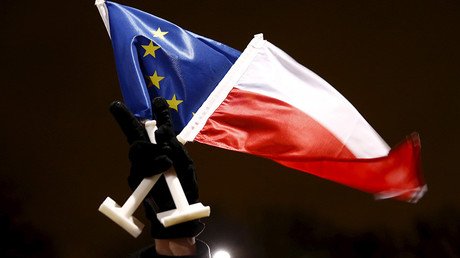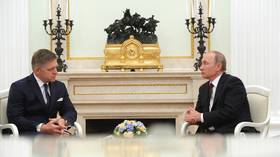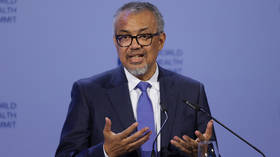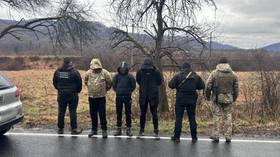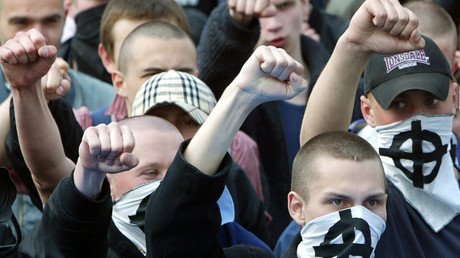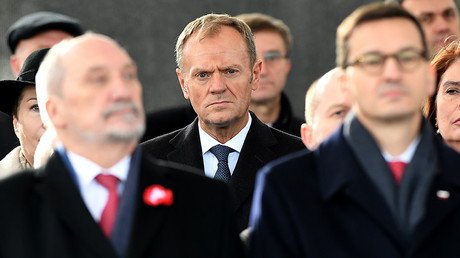Polexit? New Iron Curtain divides Europe, with conservative East v liberal West
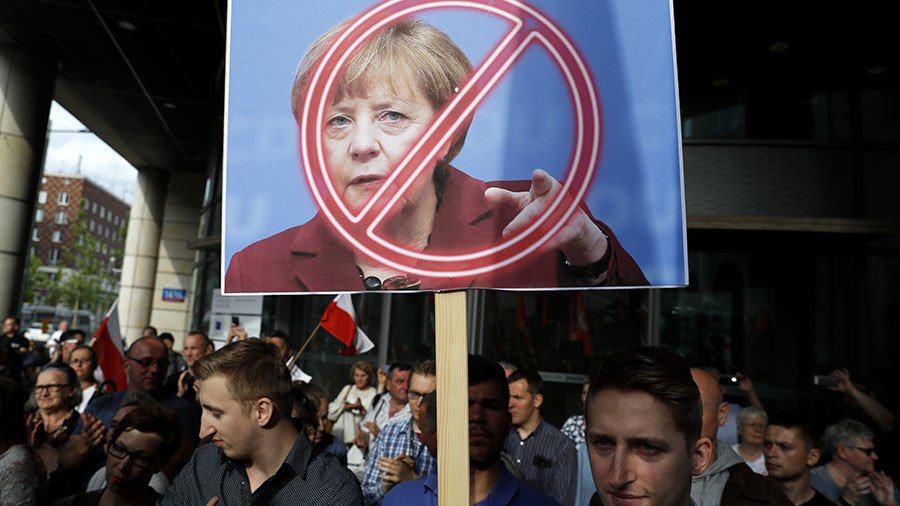
Rudyard Kipling once wrote that “East is East, and West is West, and never the twain shall meet.” The poet was referring to his experiences in India and Britain, but the line could increasingly apply to modern Europe.
Donald Tusk lobbed a grenade into the room last week when he warned that Poland, his homeland, could feasibly follow Britain out of the European Union in the future. Speaking to a Warsaw news weekly, the EU president suggested Polish attitudes may change if the country eventually becomes a net contributor to the bloc's finances.
Of course, there are internal political dynamics behind Tusk’s warning, given the ruling Law and Justice (PiS) party is the primary opponent of Civic Platform (PO), which he co-founded and led for 11 years.
Under Tusk’s guidance, the latter party pursued a liberal pro-European course modelled on Angela Merkel’s German Christian Democrats. By contrast, PiS are nationalist conservatives, strongly opposed to unfettered immigration and skeptical of Brussels. However, they don't seem to have qualms about accepting EU cash with Poland currently the biggest recipient, at $10 billion annually.
‘Polexit’ vote could happen if #Warsaw becomes #EU net contributor – Tusk https://t.co/zM74IGAne5pic.twitter.com/JTlA6Vhszn
— RT (@RT_com) January 11, 2018
Bigger picture
It’s important to point out the domestic factors influencing Tusk’s words, before tackling the broader matter of EU fragility. Because there are hardly two main parties in any European country as bitterly opposed as this pair. And personal animosity aside, opposition to abortion and same-sex marriage added to a distrust of Russia and, to a lesser extent, Germany are about the only issues on which they agree.
Brussels’ two main gripes with Warsaw are the refusal to accept migrants from Africa and the Middle East under an EU plan to redistribute them and what Eurocrats perceive as PiS’ attempt to “retreat from democracy”. They are joined by Hungary, a traditional Polish ally, in the Eurocrat bad books when it comes to both matters.
Poland says it will not admit the migrants because of security concerns, citing deadly Islamist attacks in Western Europe. It’s joined in that view by Slovakia and Czechia, which also comprise part of what is known as the ‘Visegrad Group’, along with Hungary. Other EU members less than supportive of the newcomers include Croatia and Bulgaria, but they have been much quieter publicly.
Meanwhile, the Baltic States have been more ‘creative’ in managing the issue. For instance, Latvia gives migrants only €139 (US$171) a month, which isn’t enough to rent a small flat. And, as Ainars Latkovskis, head of the Parliamentary Commission for Internal Affairs, told the BBC, “they can, of course, look for work. But by Latvian law, you have to speak the language to get a proper job and it usually takes years to learn.”
Riches galore
Across the continent’s east, voters largely bit their tongues during EU accession because the lure of Brussels’ cash pile and the freedom to work in the more prosperous West was too tempting to decline. However, now they’ve settled into the bloc and reaped the initial benefits, Eurocrats are discovering that a sort of ideological ‘Iron Curtain’ still separates many of the former Warsaw Pact states from their new allies.
Because, let’s be clear, despite the EU’s many successes in encouraging European unity, there are different historical memories and varying degrees of religious observance across the continent. And this lack of a common narrative or belief system makes consensus hard to manufacture.
For instance, Germany feels it has a moral duty to help vulnerable migrants, which partly stems from a collective obligation to pay penance for sins of the past. At the same time, the likes of France, Britain, Spain, Portugal and the Netherlands are former colonial powers, with long-held and deep associations with countries in far-flung regions of the world.
But Eastern and Central Europe are different. Even in Austria, a nominally ‘Western’ state (despite Vienna being geographically east of Prague), the immigrants have provoked a political backlash. For instance, regions have cut benefits and the far-right Freedom Party (FPO) has entered government.
Two worlds collide
The problem for Brussels is that the EU’s new members from east of Berlin have a different concept of European values than their Western peers. Largely former members of the Russian and Austro-Hungarian empires, and later the ‘Eastern Bloc’, they generally define European values through a Christian perspective, in opposition to the liberalism popular in contemporary France, Germany and Britain. Furthermore, many had historical experiences of conflict with the Turkish-led Ottoman Empire, which helps fuel specific anti-Muslim sentiment.
There are also grievances with economic progress since EU accession. For instance, the huge difference in salary levels between the Western and Eastern countries of the bloc is a major bugbear for the latter. So much so that several of them, including Poland, Slovakia and Croatia, recently established the ‘WageUnion’ initiative, demanding wage equalization. While even EU Commission President Jean-Claude Juncker concedes how “in a Union of equals, there can be no second-class citizens.” Yet, any attempt to bring East European wages closer to levels in Ireland, Denmark or Belgium will also have the effect of exposing demographic difficulties in richer members, making them even more reliant on migrants from outside the EU.
Kipling’s “East is East, and West is West” argument was made in a different time and about an even wider chasm. However, it is reasonable to suggest a new Iron Curtain is descending across Central Europe. The difference this time is that battle is between conservatism and liberalism. Not communism and capitalism. Donald Tusk knows these dangers. And that's why his warning of a potential 'Polexit' should be taken seriously by other EU leaders.
The statements, views and opinions expressed in this column are solely those of the author and do not necessarily represent those of RT.

